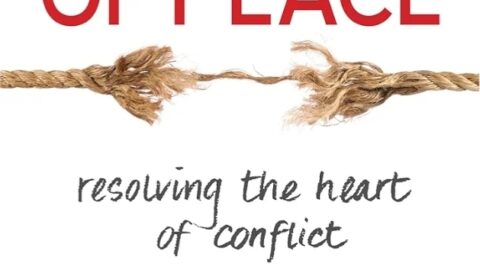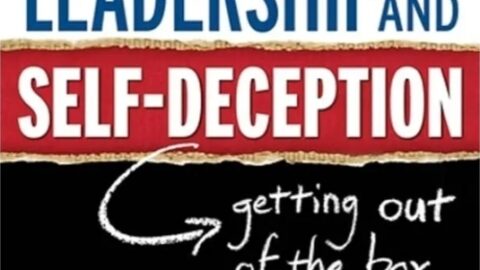The True Meaning of Education: Beyond Degrees and Classrooms (Part 1)
Pythagoras’ words, “Educate the children and it won’t be necessary to punish the men,” remind us that education is not simply about acquiring degrees but about shaping character, intellect, and ethical responsibility from an early age. True education is about cultivating wisdom, discernment, and an ability to engage meaningfully with the world. Many great thinkers—Norman Rockwell, Margaret Mead, Ara Parseghian, and Joyce Brothers—have echoed this sentiment, emphasizing that an educated person is defined not by credentials but by behaviors, mindset, and relationships.
Education is the Ability to Evaluate Contradictory Ideas
Norman Rockwell’s insight challenges the modern misconception that education is about reinforcing one’s existing beliefs.
“You aren’t really educated unless you can honestly evaluate opinions contrary to your own. To do that, you must give the other idea a fair trial. We often say we’ve changed our minds when we’ve merely rearranged our prejudices. Nobody is so charitable that he’ll go bankrupt making allowances for others. And, of course, an attitude of tolerance affects your entire relationship with others. You’ll never meet a broad-minded person with a swelled head.”
He argues that true education requires:
- The intellectual humility to consider opposing viewpoints.
- The capacity to give fair trials to ideas that contradict one’s own.
- The awareness that simply rearranging prejudices is not the same as changing one’s mind.
In today’s polarized world, people often assume that intelligence is demonstrated by how well one can argue their position. However, Rockwell reminds us that the truly educated individual is one who listens, questions, and refines their thinking based on reason, rather than clinging stubbornly to preconceived notions.
Education is a Sense of Time, Place, and Comparative Values
Margaret Mead expands on this:
“An educated person has a sense of time, of sequence and simultaneity of events; a sense of place, where he is in relation to the rest of the world; and a sense of comparative values. He is cosmopolitan enough to know that there are and have been value systems other than his own.”
Defining an educated person as someone who understands:
- Time – the sequence of events and how the past shapes the present and future.
- Place – one’s position in the world, culturally, historically, and geographically.
- Comparative values – the awareness that other cultures, ideologies, and moral frameworks exist beyond one’s own.
This definition emphasizes context and perspective as essential components of education. It suggests that a truly educated person is not provincial but cosmopolitan, able to navigate and respect diverse ways of thinking.
Education is About Taking Initiative
Ara Parseghian’s breakdown of human behavior—those who make things happen, those who watch things happen, and those who don’t even know what’s happening—reinforces the importance of action-oriented intelligence.
“There are three kinds of people—those who make things happen, those who watch things happen, and those who don’t even know what’s happening. An educated person finds himself more often in the first category than the second, and never in the third.”
An educated person:
- Recognizes opportunities and acts upon them.
- Engages with the world, rather than passively consuming information.
- Is never ignorant of major events and their implications.
Many people mistake education for knowledge accumulation, but Parseghian’s perspective suggests that education should empower individuals to engage with the world proactively, rather than merely observing or remaining oblivious.
Education is Defined by How We Treat Others
Joyce Brothers shifts the focus from intellect to character:
“The educated person is distinguished by his treatment of all others, whether they are above or below him in stature or ability. He has an inquiring mind and sincerely believes he can learn something from every person he meets.”
She highlights that an educated person:
- Treats others with respect, regardless of their social status.
- Possesses an inquiring mind, always seeking to learn from others.
- Recognizes that every person has something to teach us.
This view suggests that education is not about intellectual superiority but intellectual humility—the recognition that learning is a lifelong process and that wisdom often comes from the most unexpected sources.
Education is More About Behavior Than Formal Schooling
All of these perspectives point to one crucial theme: education is not about time spent in a classroom but about the way a person thinks, acts, and interacts with others.
- A degree does not make a person wise.
- A title does not make a person moral.
- Memorization of facts does not equate to true understanding.
Instead, education is curiosity, open-mindedness, humility, engagement, and ethical responsibility.
Final Thoughts: The Purpose of Education
Pythagoras’ statement holds true because an educated society—one where people think critically, act responsibly, and treat others with respect—requires fewer laws and punishments. Education, in its truest form, prevents societal decay because it fosters wisdom, virtue, and accountability.
Thus, the goal of education should not simply be producing degree-holders, but nurturing thoughtful, virtuous, and action-oriented individuals who uplift society rather than burden it.







